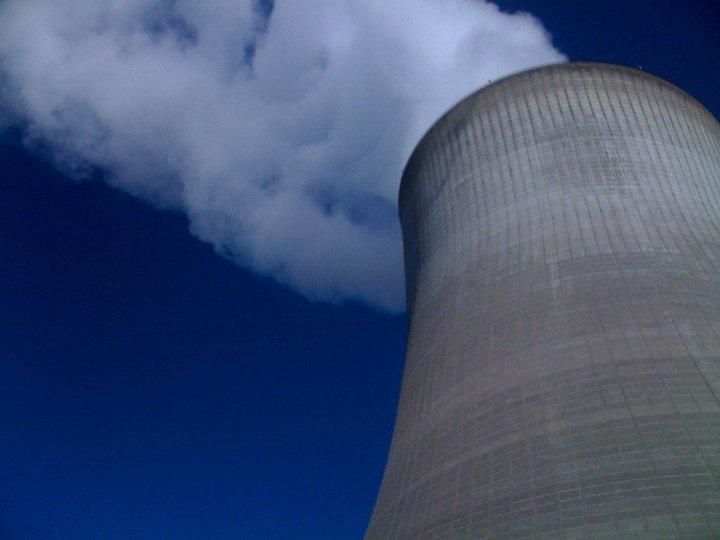
Section Branding
Header Content
Plant Vogtle: The Future Of Nuclear?
Primary Content

"Good evening...The world has never known a day quite like today. It faced the considerable uncertainties and dangers of the worst nuclear power plant accident of the atomic age and the horror tonight is that it could get much worse."
That’s news anchor Walter Cronkite in 1979 after the partial meltdown of the Three Mile Island plant in Pennsylvania.
The accident released radioactive gas into the atmosphere. It prompted a mass evacuation.
No one died but the Nuclear Regulatory Commission tightened its rules.
That made it nearly impossible to build new nuclear plants in the United States.
Today it’s quite a different story.
Progress on two new reactors at Plant Vogtle near Augusta is proof that a lot has changed since Three Mile Island says David Jones.
He’s the man in charge of construction at the site.
"The significant changes that have been made in the licensing, design and construction technology being used has made nuclear power construction going forward a viable option."
In the 90s congress passed a law simplifying the NRC licensing process.
That allowed Southern Company to start planning for two new reactors without having the license to build them.
And they’re proud to show off the work.
(SOUND OF CONSTRUCTION AND HEAVY MACHINERY)
At the site a fleet of bulldozers moves dirt around two enormous holes, each as big as five football fields.
A team of Southern Company spokespeople gives the media a tour.
(SOUND OF SPOKESPERSON TALKING ON A MEGAPHONE: Let me just point out a few things...can y’all hear me....this is unit 3 excavated hole....and then there’s a ridge you can see unit 4 on the other side....)
President Obama has been pushing for a nuclear renaissance.
He says building new reactors will create thousands of jobs, cut emissions and reduce dependence on foreign oil.
Last year the president put taxpayer money where his mouth is.
"We are announcing roughly 8 billion dollars in loan guarantees to break ground on the first new nuclear plant in our country in 3 decades."
Right now Southern Company is the only utility taking the administration up on its offer to essentially cosign on new nuclear projects.
But it’s not the only help the company is getting.
Last month Georgia’s Public Service Commission approved a surcharge forcing Georgia Power customers to help finance the new reactors before they are built.
Sara Barczak of environmental group Southern Alliance for Clean Energy says that’s not fair especially since the NRC hasn’t even licensed the reactors.
"Why can’t the utilities go ahead and get the permitting out of the way and then come to the Public Service Commission to ask to have money taken out of ratepayers pockets?"
Barczak says she worries the estimated 14 billion dollar project could go way over budget or not be finished at all leaving customers on the hook.
And one long term question remains...what to do with the thousands of tons of radioactive spent fuel plants like Vogtle generate each year.
Recently the Obama administration canceled plans for a nuclear waste repository at Yucca Mountain in Nevada.
Now a federal panel is looking at other ways of dealing with the 70,000 tons of waste currently stored at nuclear plants across the country.
James Miller is the president and CEO of Southern Nuclear the contractor that operates Plant Vogtle.
Miller says even without a long term plan for the waste it’s pretty clear that boom times are ahead for the nuclear industry.
"I believe that the 21st Century stands a very good chance in the electric power generation business to be the century of uranium...the century of atom."
Miller says work at Vogtle is right on schedule and expects to be licensed by the NRC early next year. If that happens, he says, the first nuclear reactor to be built in the country in 30 years will go online in 2016.
Tags: Southern Company, Barack Obama, nuclear energy, Plant Vogtle, Georgia Public Service Commission
Bottom Content

